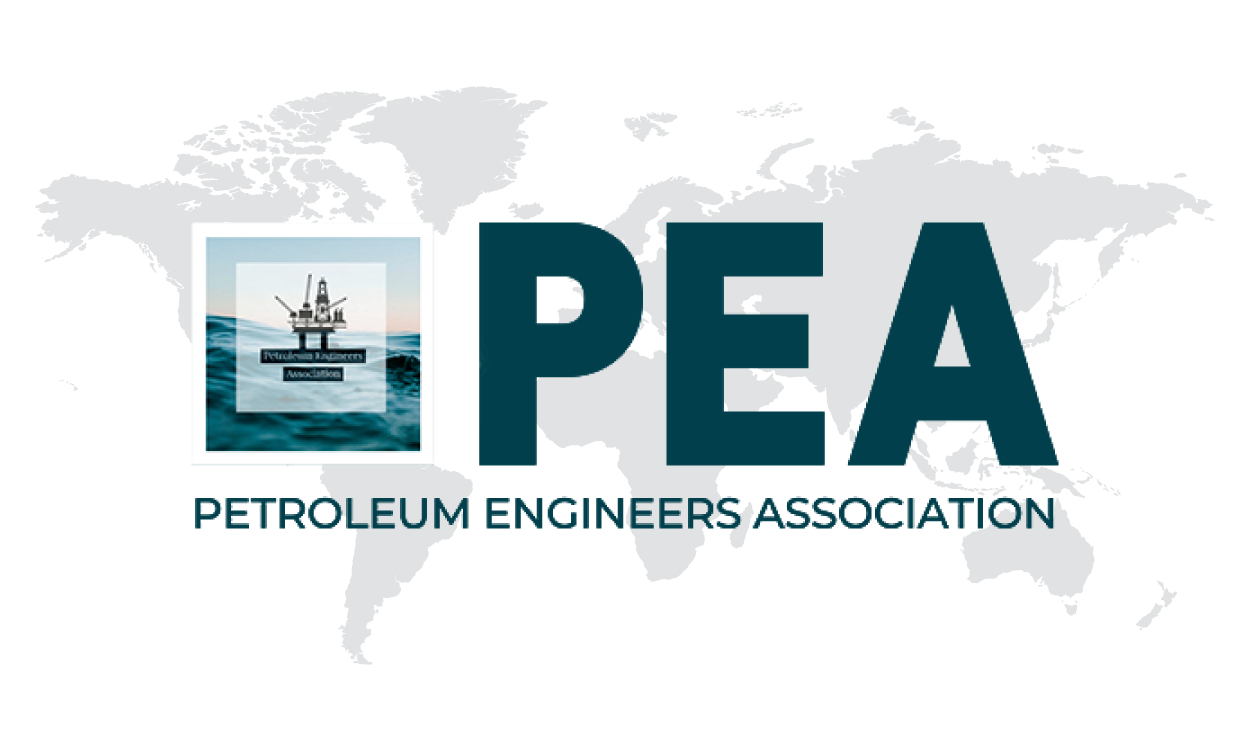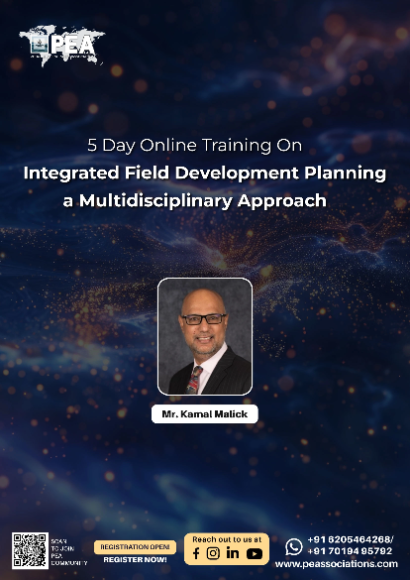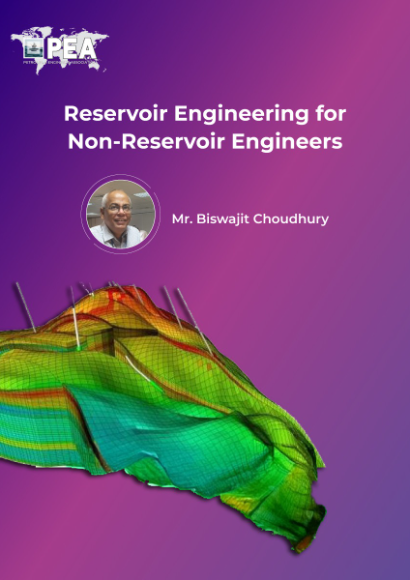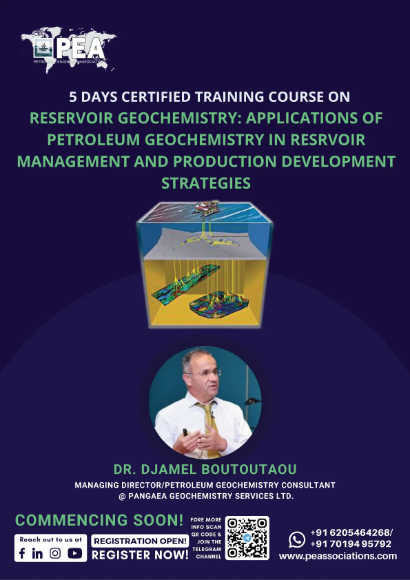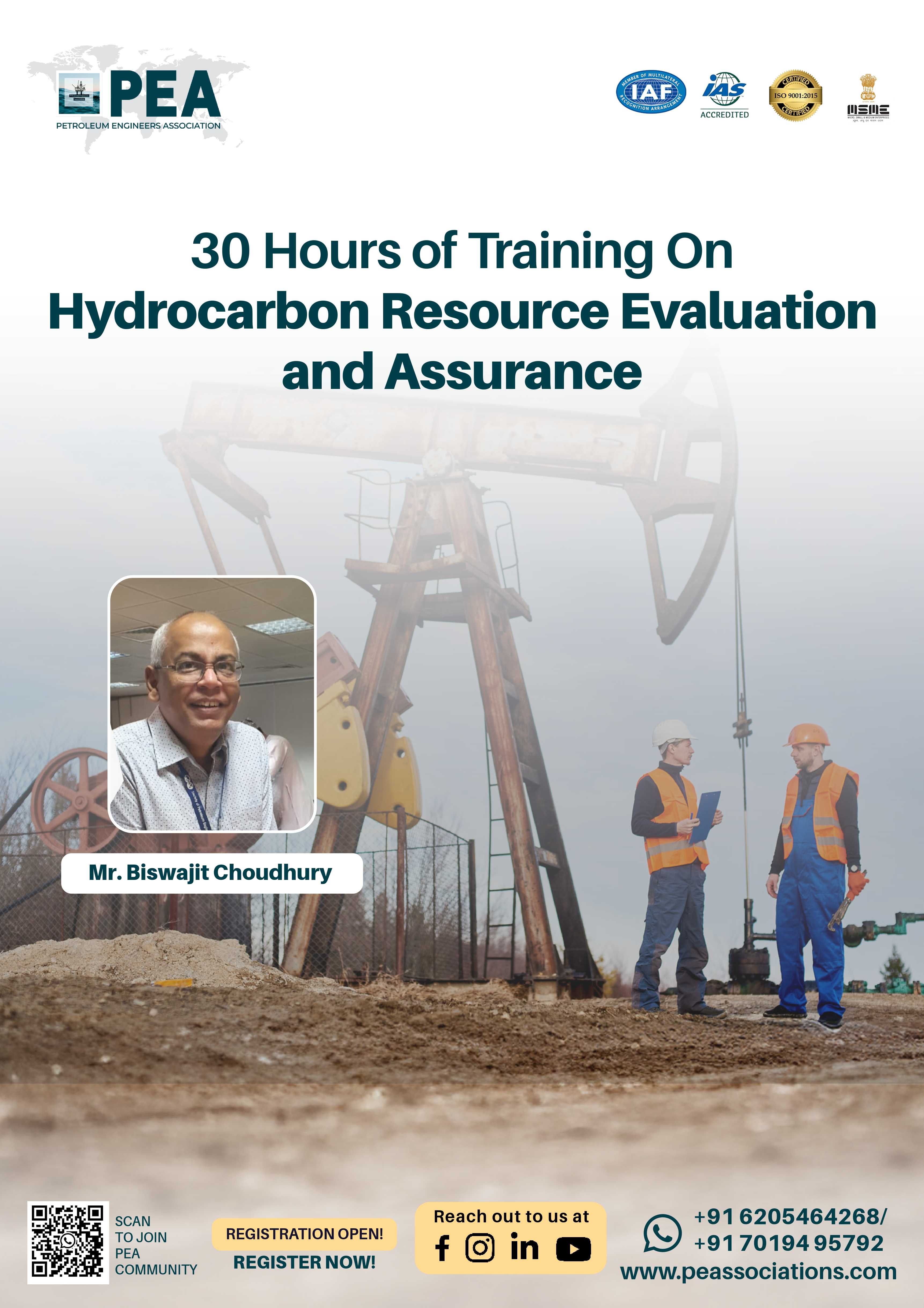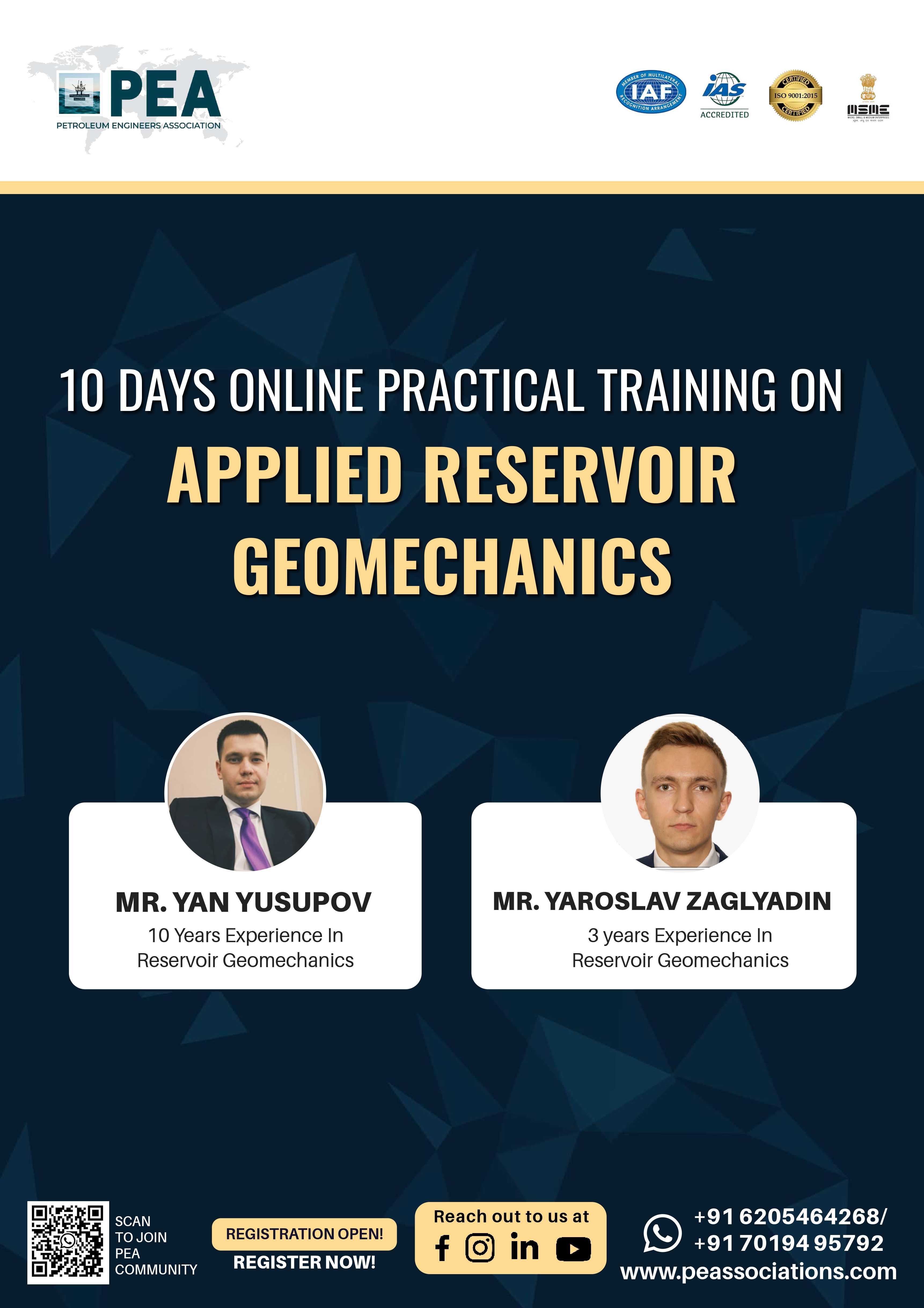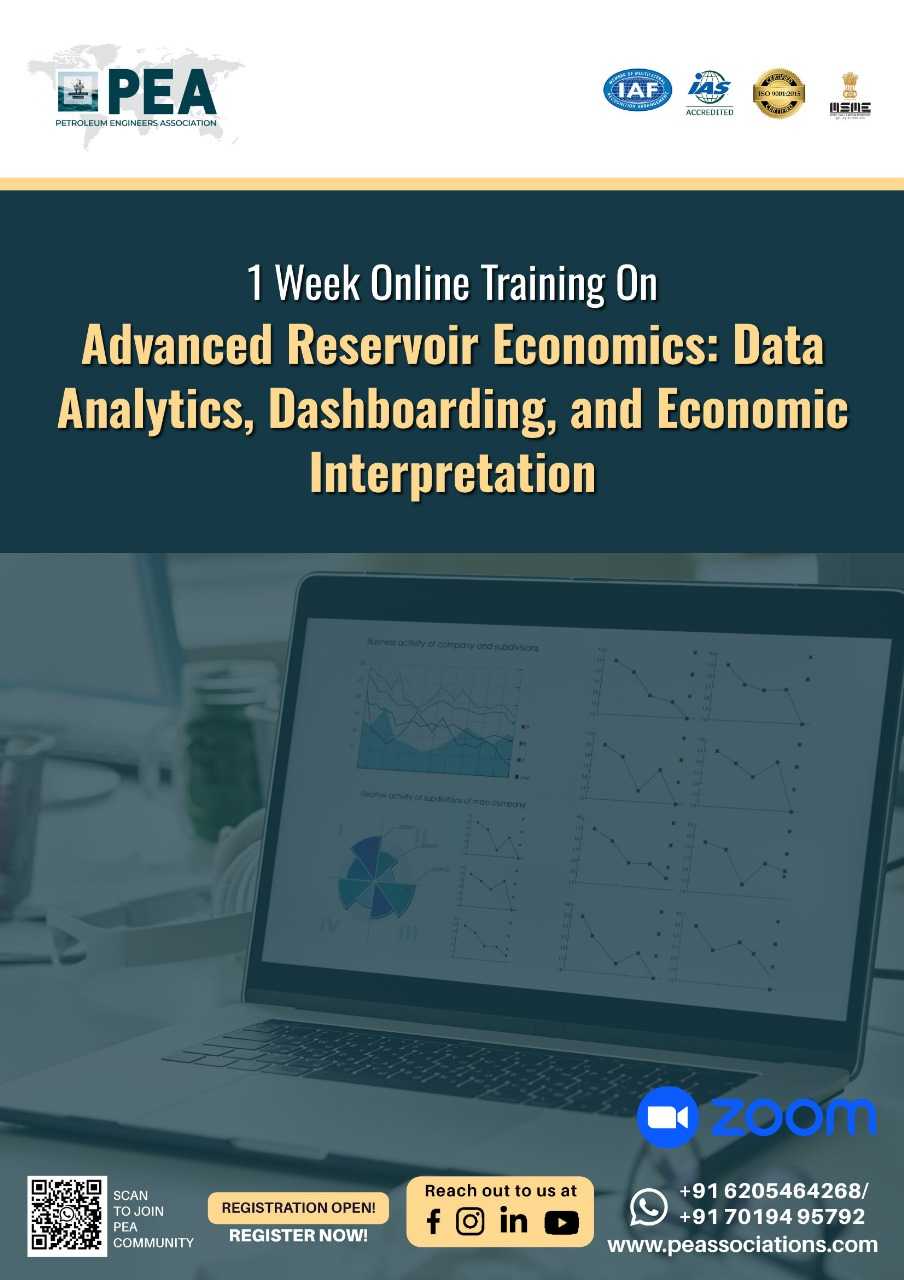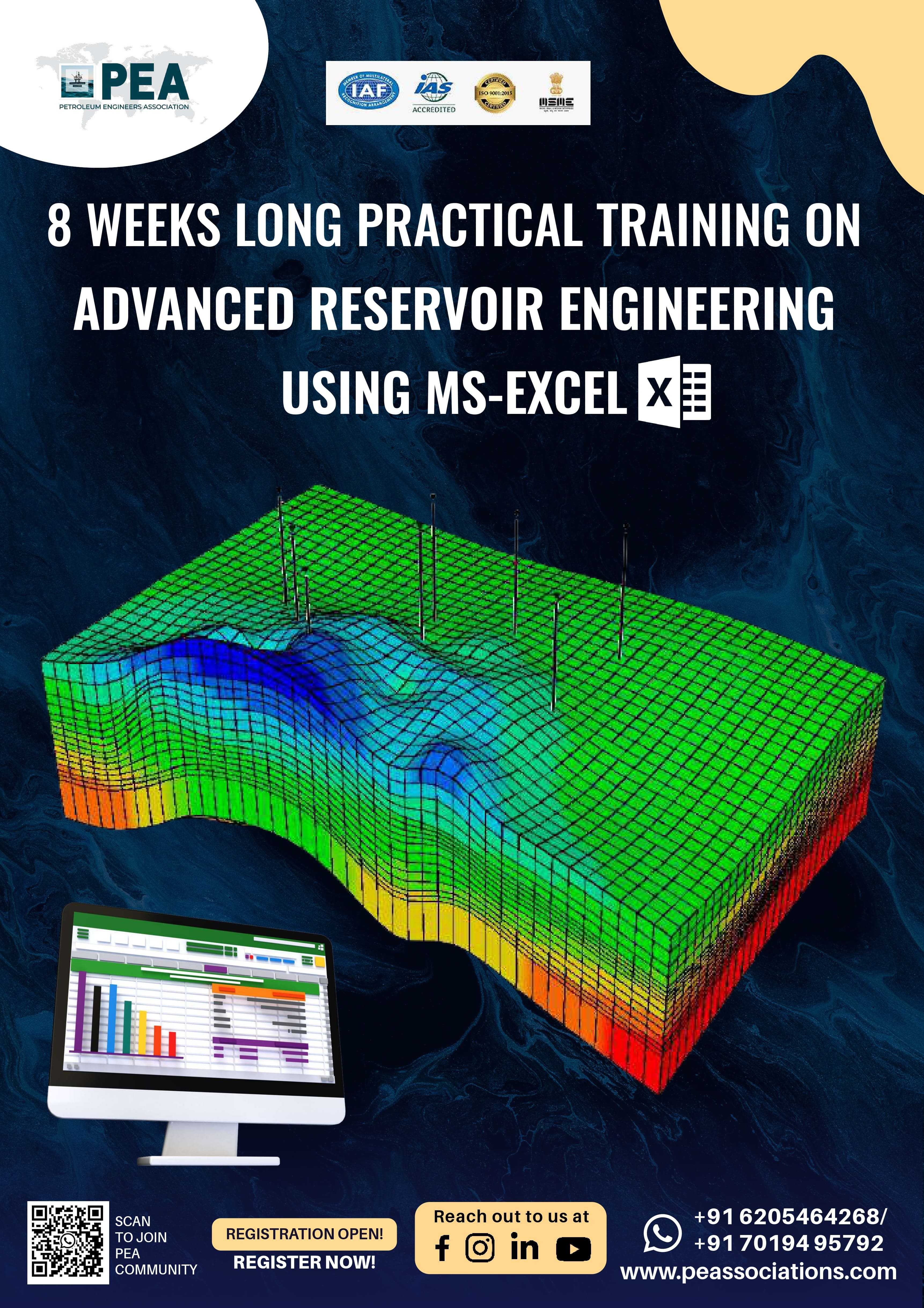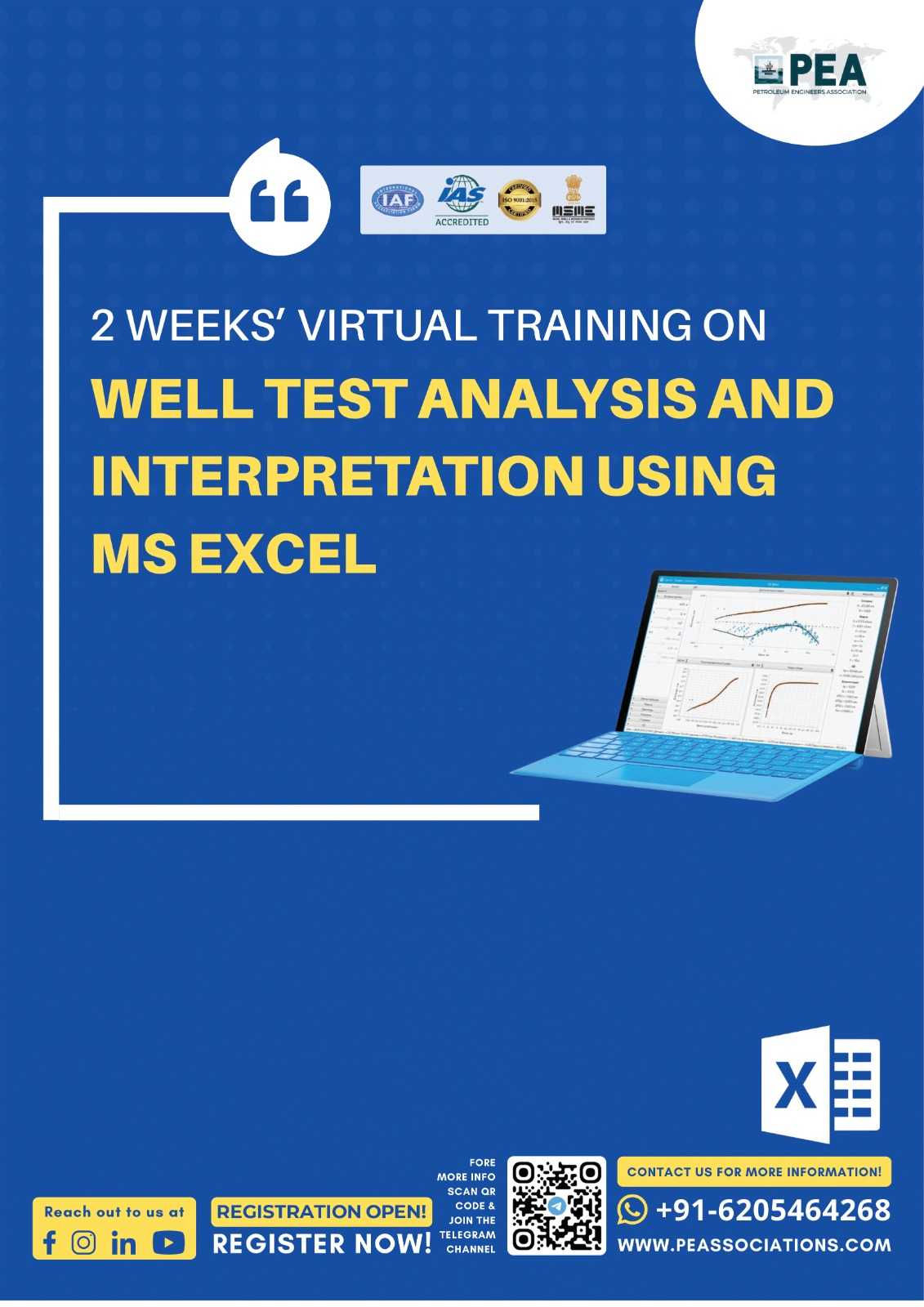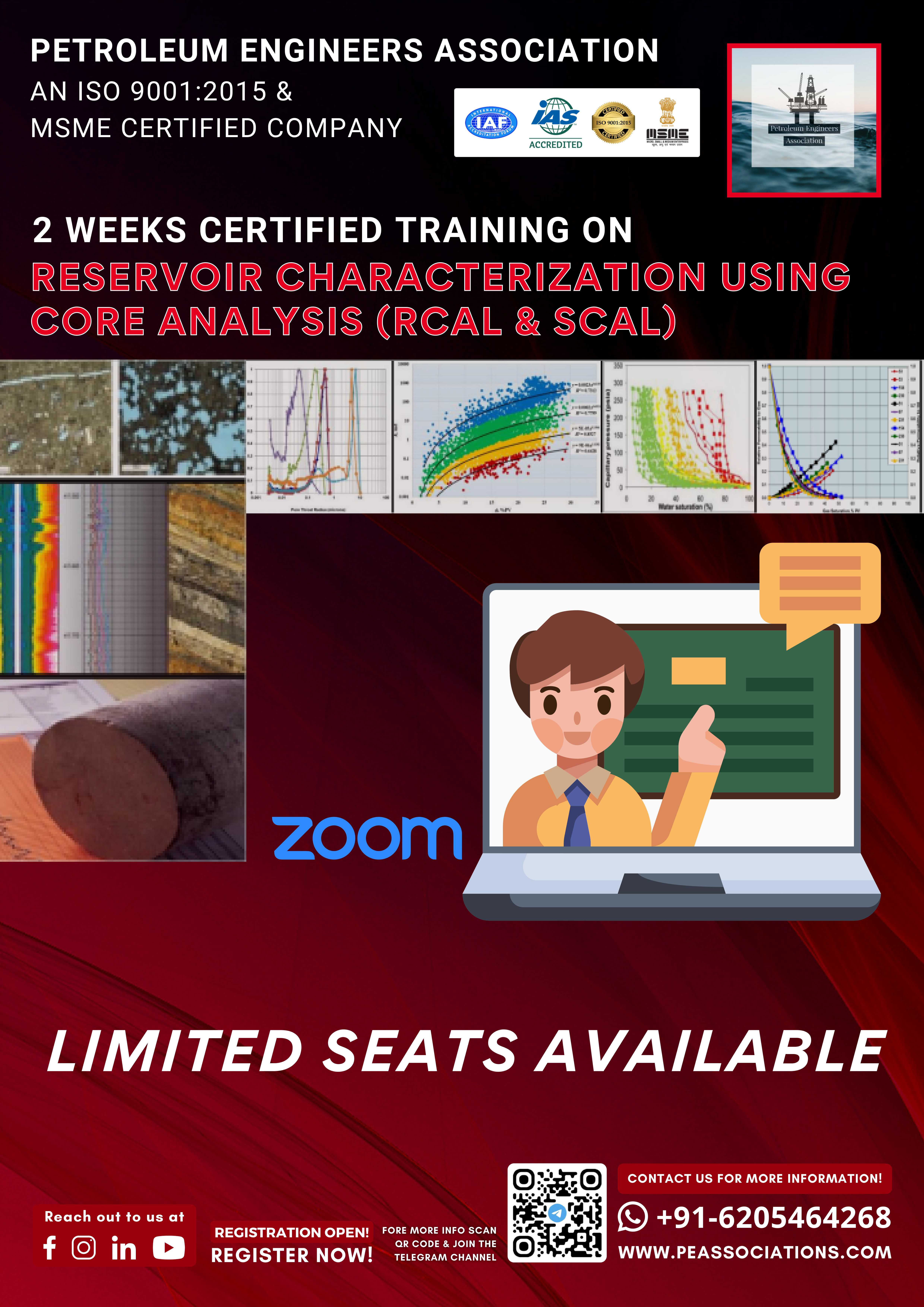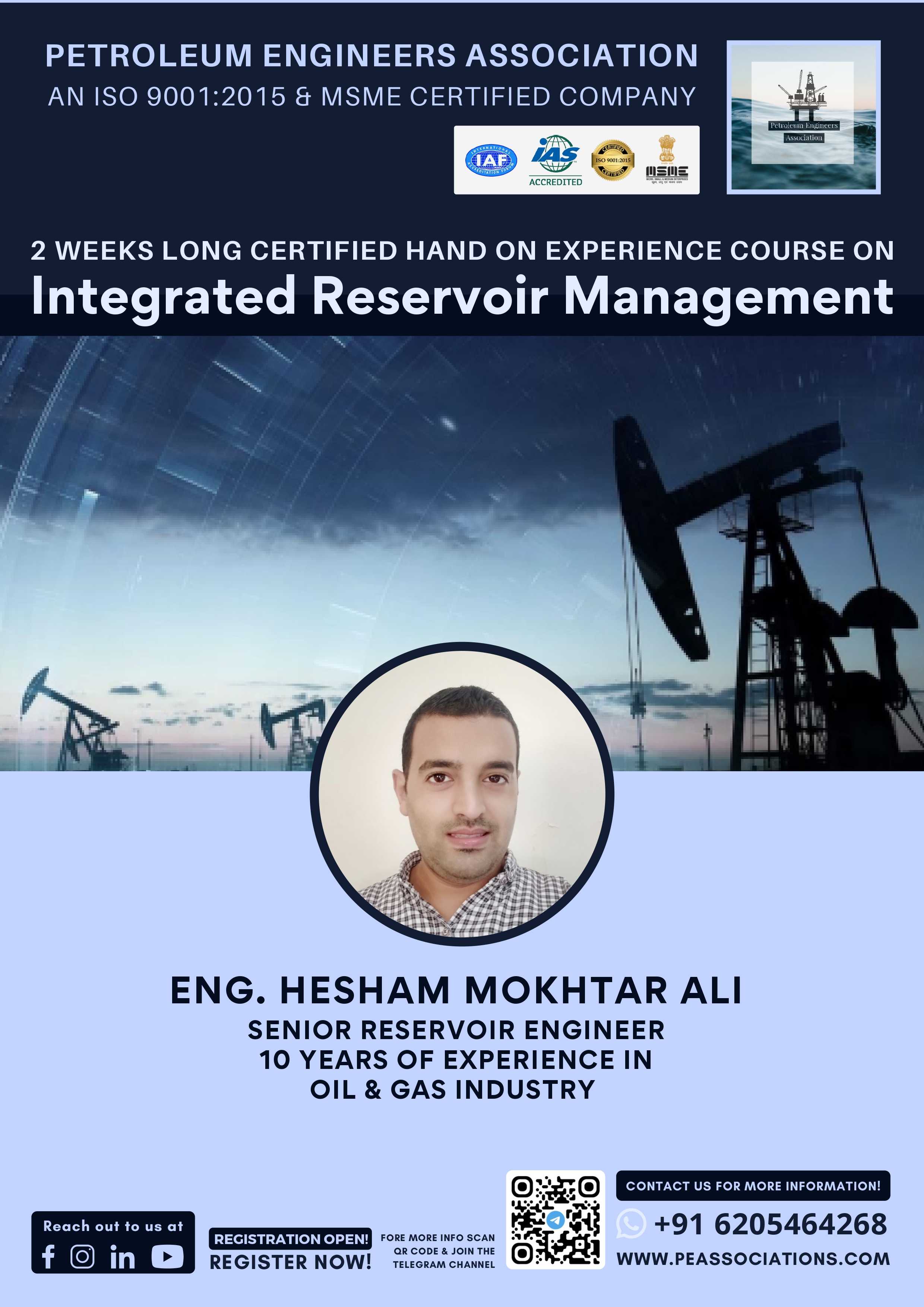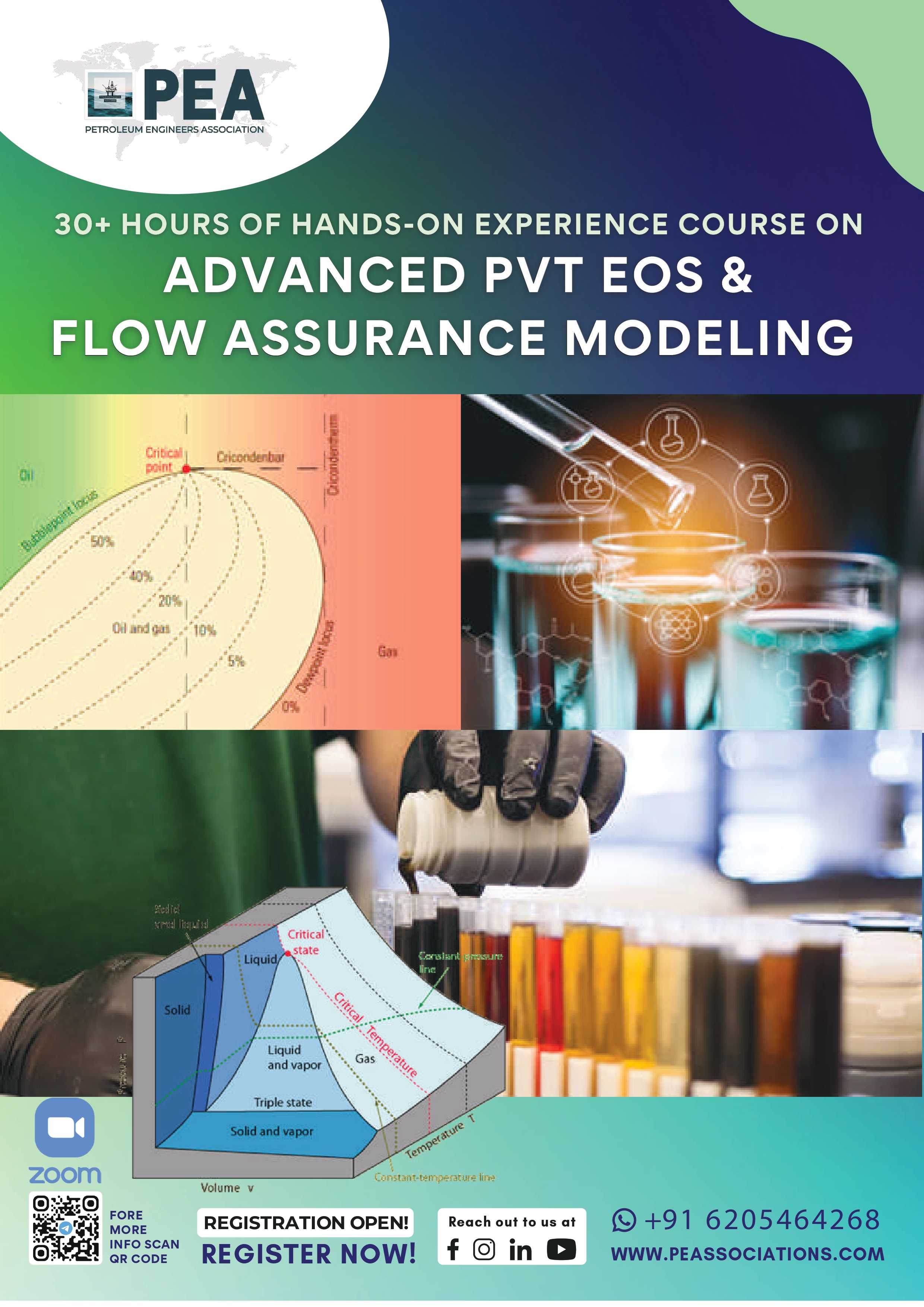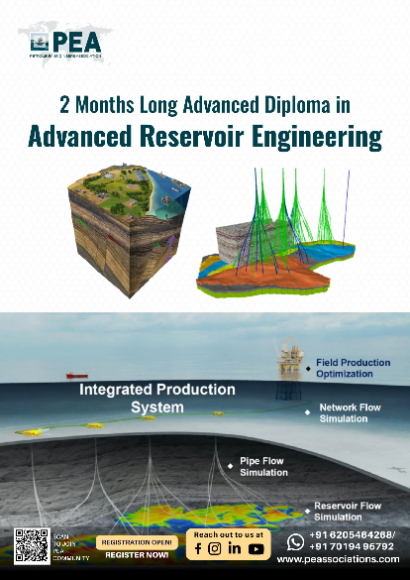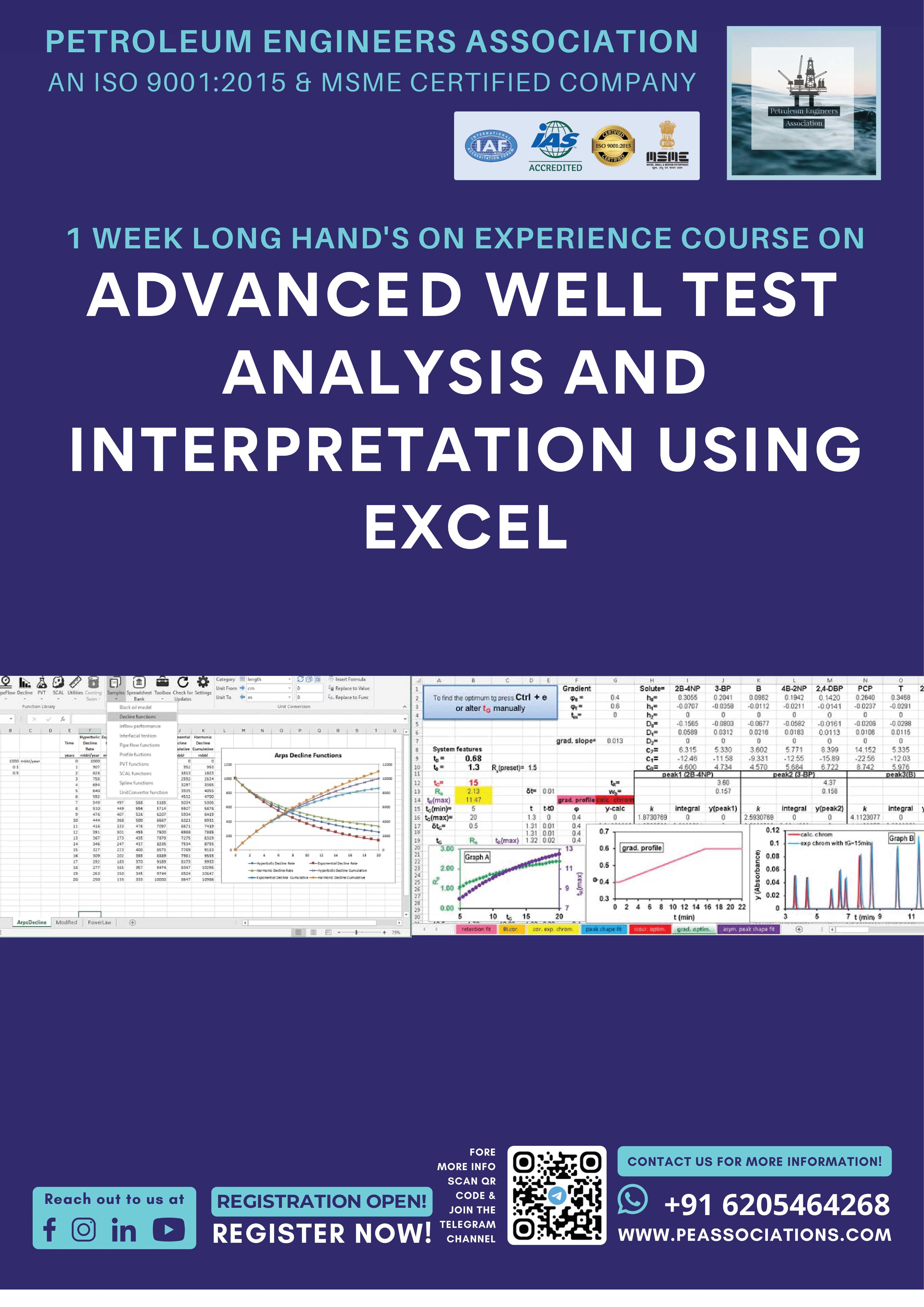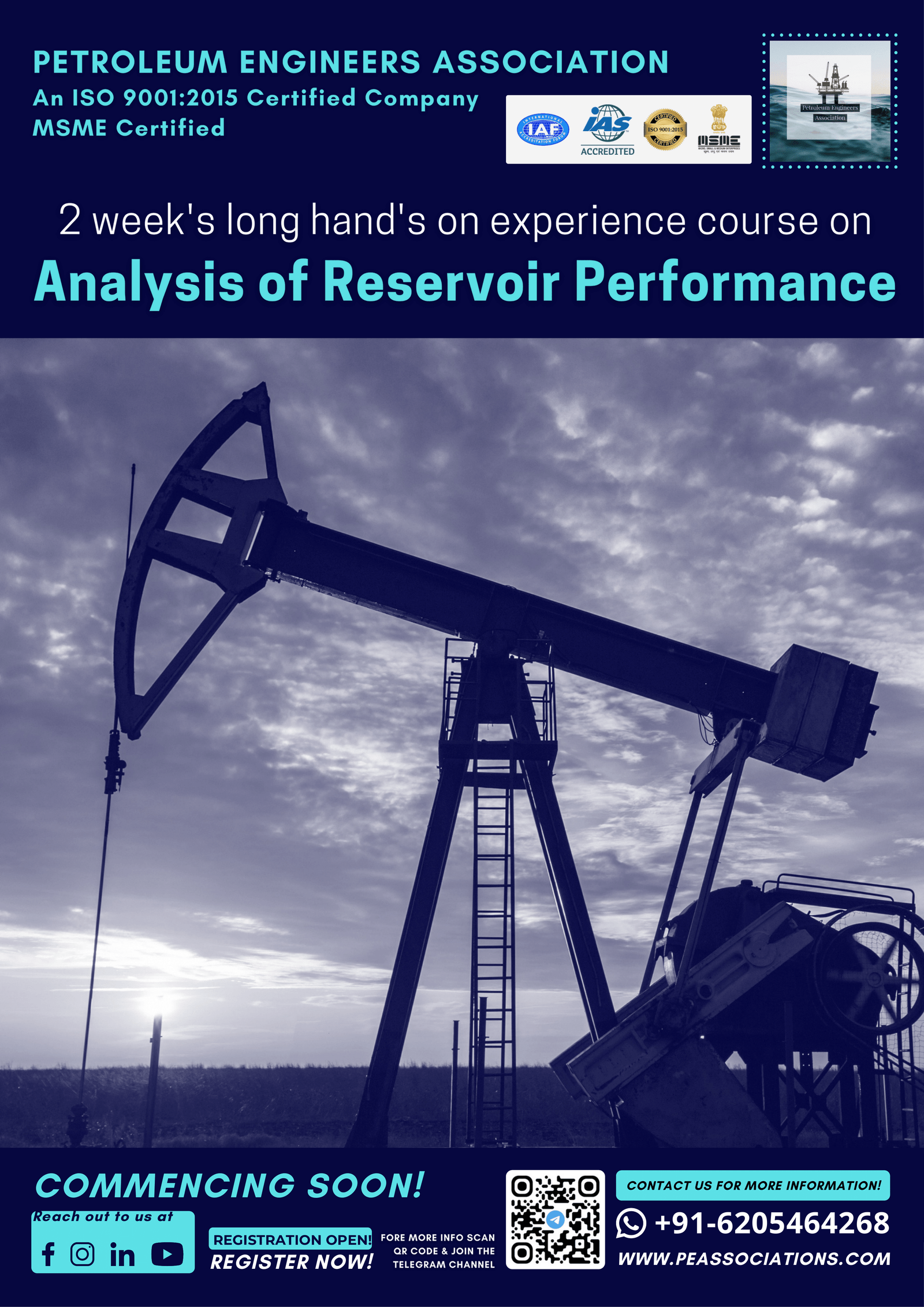Integrated Field Development Planning
| Code | Date | Time | Duration | Location | Currency | Team of 10 Per Person | Team of 7 Per Person | Early Bird Fee Per Person | Normal Fee Per Person |
|---|---|---|---|---|---|---|---|---|---|
| PEA-IFD26 | 04 - 08 May 2026 | 8 PM Indian Time |
4 Hours Per Day
|
Zoom Online
|
USD
|
1650
|
1700
|
1850
|
2500
|
The Classes will be Online Via Zoom from Monday to Friday- 4 Hours / Day.
Boost your team's skills and your budget! Enjoy group discounts for collaborative learning. Send an inquiry to info@peassociations.com.
Integrated Field Development Planning
This course provides a holistic, cross-functional training on integrated field development planning. Learn to collaborate across disciplines and apply strategic and technical principles for the effective development of oil and gas fields.
Description
Demo Class
Field development planning is a dynamic and collaborative process that lies at the heart of upstream success. This training introduces participants to the integrated approach needed to answer vital technical and commercial questions throughout the lifecycle of a field. It emphasizes cross-disciplinary collaboration, sound technical analysis, and strategic thinking to ensure optimal field development.
Understand the key stages and challenges of field development
Characterize oil and gas reservoirs using geologic and engineering data
Improve collaboration between geoscientists, engineers, and economists
Distinguish between reserves and resources using SPE-PRMS standards
Evaluate hydrocarbon resources using volumetric and probabilistic methods
Instructor-led sessions with industry case studies
Concept reinforcement through real-world examples
Active engagement to foster cross-functional collaboration
Focused modules covering technical, economic, and strategic aspects
Adoption of global best practices for field development
Enhanced collaboration and communication across teams
Elevated internal capabilities in managing complex assets
Stronger technical and strategic decision-making frameworks
Improved efficiency in resource planning and project evaluation
Skills in economic evaluation and decision modeling
Enhanced problem-solving and strategic planning capabilities
A comprehensive understanding of integrated field development
Improved communication and coordination with other disciplines
The ability to assess reservoir performance and identify optimization opportunities
Economists
Geoscientists
Petrophysicists
Asset Managers
Reserves Analysts
Reservoir Engineers
Operations Engineers
Business Development Professionals
Module 1: Introduction to Field Development Planning
What is Integrated Field Development Planning
Stages of Field Development
Critical Questions in FDP
Roles of Different Disciplines
Management Expectations
Group Discussion on FDP Challenges
Module 2: Hydrocarbon Resource Assessment & Classification
Resource Assessment and Classification
Volumetric Methodology
Deterministic vs Probabilistic Assessments
Reserves vs Resources
SPE PRMS Resource Classification
Module 3: Gas Reservoirs Development Planning
Planning for Gas Reservoirs
Natural Gas Characterization
Liquids-Rich and Retrograde Condensate Behavior
Gas Reservoir Management
Depletion and Water-Drive Gas Reservoirs
OGIP Estimation and Drainage Area
Production Behavior
Module 4: Oil Reservoirs Development Planning
Oil Reservoir Characterization
Behavior of Saturated and Under-Saturated Reservoirs
Types: Black, Heavy, and Volatile Oils
Drive Mechanisms
Sampling and Fluid Property Analysis
Material Balance and Management
EOR Basics and Uncertainty Analysis
Module 5: Economic Analysis & Decision Modeling
Petroleum Economics
Project Ranking and Economic Indicators
Time Value of Money and Discount Rates
Discounted Cash Flow (DCF) Analysis
Decision Modeling: EMV and Decision Trees
Value of Information Exercise
On successful completion of this training course, PEA Certificate will be awarded to the delegates

Kamal Malick, P. Eng. MBA - More than 25 years of experience in Canada, USA, North Sea and Asia-Pacific regions. Currently working in Denver, Colorado in the Powder River Basin. Worked in various conventional, tight, and unconventional fields in Alberta, Canada. Previously, Subsurface Manager for one of the largest onshore gas fields in Indonesia. Also worked on volatile oil and retrograde-condensate gas fields in Algeria and on several oil fields in the UK North Sea. Started his career from Pakistan where he worked on field development and exploitation planning of oil and gas fields in the Badin Basin in Sindh and in the Kirthar fold belt in Balochistan.
Frequently Asked Questions
All course bookings made through PEA are strictly non-refundable. By registering for a course, you acknowledge and accept that all fees are payable in full and are not subject to refund under any circumstances, including changes in personal or professional commitments or partial attendance.
PEA reserves the right to make reasonable adjustments to course content, trainers, or schedules where necessary, without entitling delegates to a refund. Comprehensive details of each course — including objectives, target audience, and content — are clearly outlined before enrolment, and it is the responsibility of the delegate to ensure the course's suitability prior to booking.
For any inquiries related to cancellations or bookings, please contact our support team, who will be happy to assist you.

